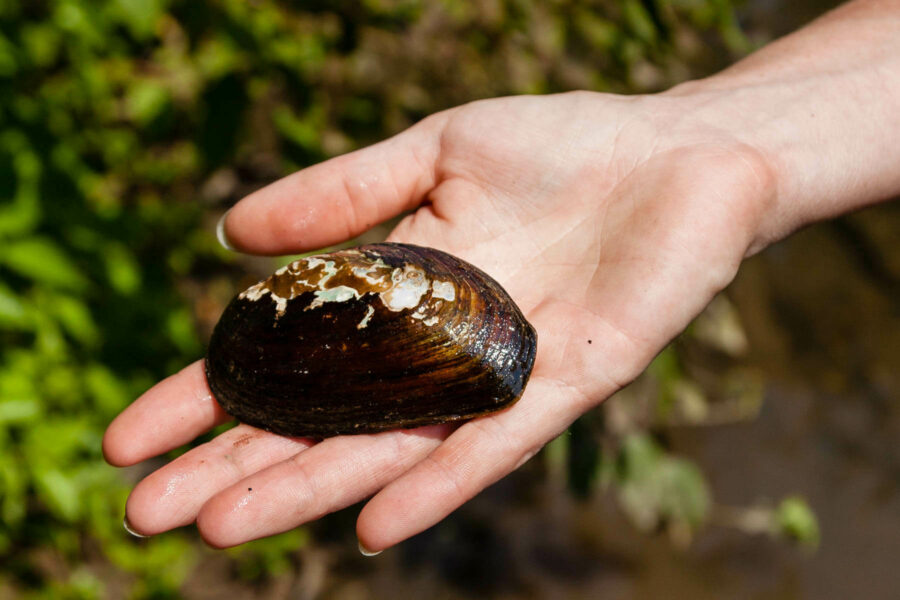Putting some mussel into river restoration

Maryland’s Patapsco River, which flows through central Maryland into the Chesapeake Bay, hasn’t been home to the eastern elliptio, a freshwater mussel species, for 50 to 100 years. That’s about to change, as a group of scientists from the Maryland Department of Natural Resources (DNR) plans to plant baby mussels in the Patapsco in an attempt to reestablish their populations, clean the water and improve the health of the ecosystem.
Just as oysters have been restored in the Bay’s salty waters because of their ability to filter and clean the water, mussels are now getting their moment to shine in the watershed’s freshwater ecosystems. “There's only so many places oysters can be restored in the Bay,” said Matt Ashton, a DNR biologist involved with the project. “The Bay watershed is huge. Mussel restoration can happen a lot more places, so it just has the ability to engage more people.”
Mussel restoration is a little more complicated than oyster restoration because of the mussels’ need for host fish. Mussel larvae attach themselves to the gills of the host fish and live there before metamorphosing into juvenile mussels. The eastern elliptio relies on species like the American eel to serve as host fish.
One reason the mussels have been missing from the Patapsco River for so long is the dams along the river, which prevent host species from migrating up or downstream. Now that many of the Patapsco’s dams have been removed, host species like American eel are appearing in the river again, making mussel restoration possible.
Though the eastern elliptio hasn’t been seen on the Patapsco in years, it’s actually the most common of Maryland’s 16 native freshwater mussel species. The elliptio needs relatively clean water to survive, so its presence is a good indicator of environmental health.
Learn more about freshwater mussel restoration.

Comments
There are no comments.
Thank you!
Your comment has been received. Before it can be published, the comment will be reviewed by our team to ensure it adheres with our rules of engagement.
Back to recent stories